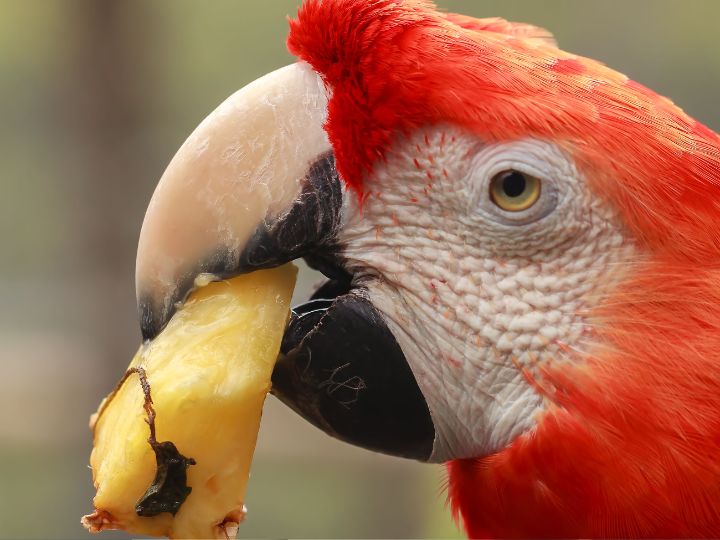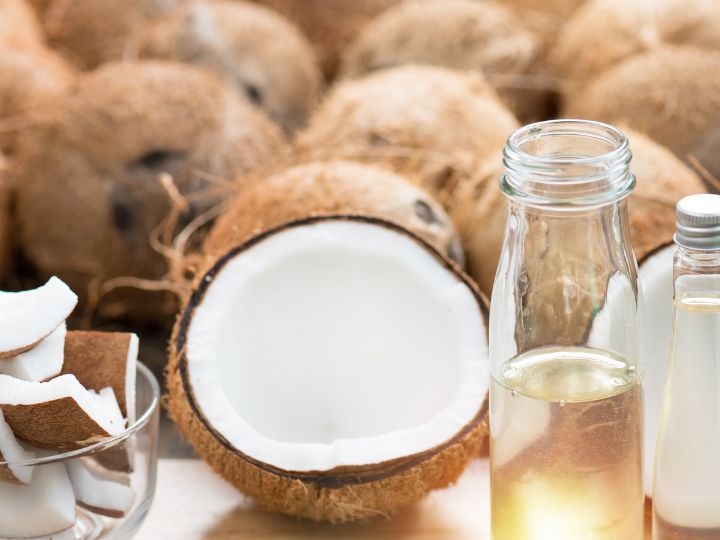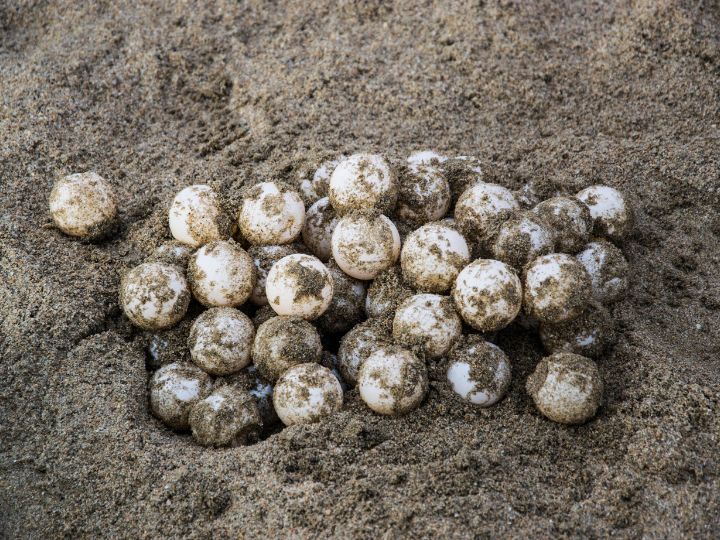Pineapples are a popular and nutritious tropical fruit that can be found in various culinary dishes and beverages around the world. While humans enjoy pineapple as a sweet and refreshing treat, it’s worth considering if any animals also consume this fruit and how it may be a part of their diet.
In the wild, several animals are known to eat pineapple, such as birds and fruit bats. Some of these animals are attracted to the scent and color of the ripening fruit, which indicates its availability for consumption. Understanding the role of pineapples in the ecosystem can provide insight into the interconnected nature of various species, as well as the potential effects their consumption has on the fruit’s reproductive cycle.
Animals That Consume Pineapple
Mammals
Some mammals are known to consume pineapple in the wild or captivity. For instance, fruit bats and African elephants have been observed eating this tropical fruit. Fruit bats, also known as flying foxes, are attracted to ripe fruit and will consume both the juicy flesh and seeds of the pineapple. African elephants may consume pineapple as part of their varied diet; they forage for a wide range of fruits and plant materials.
Birds
Several bird species are also known to consume pineapple. Among them are the keel-billed toucan and the superb fruit dove. The keel-billed toucan, native to Central and South America, relies on a diet that consists primarily of fruits, including pineapple. Meanwhile, the superb fruit dove, found in the rainforests of Southeast Asia and Oceania, also enjoys an array of fruits, including pineapple, as part of their diet.
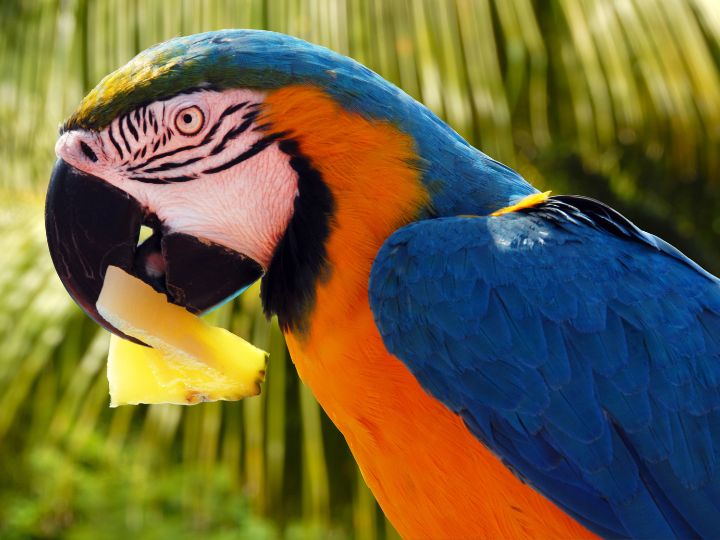
Image Credit: Canva
Insects
Insects, particularly fruit flies, are attracted to rotting and ripe pineapples. Fruit flies, also known as Drosophila, lay their eggs in overripe or decaying fruit. These insects are often spotted near pineapple plants due to the appealing sugars from the ripe fruit. While the insects do not technically “eat” the pineapple, they do consume the fruit’s juices as a food source throughout their life cycles.
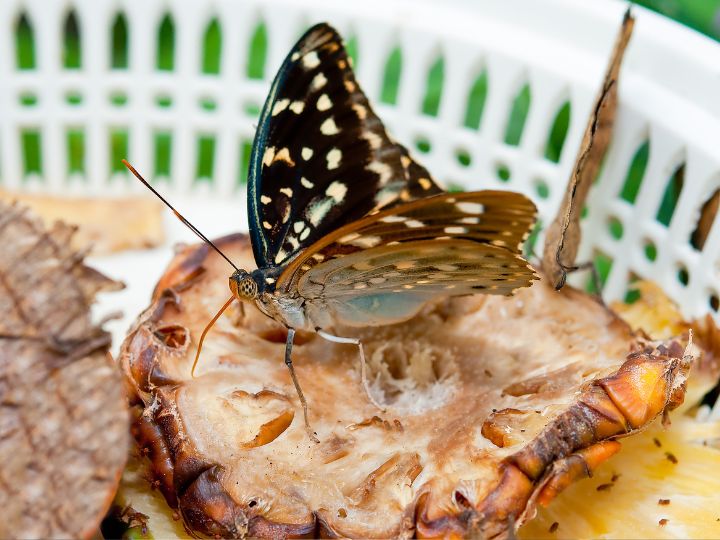
Image Credit: Canva
Pineapple Consumption in the Animal World
Pineapples are a delicious tropical fruit enjoyed by many animals. In this section, we will explore the nutritional benefits, risks, and hazards associated with animals consuming pineapple.
Nutritional Benefits
Several animals enjoy eating pineapple due to its high nutritional value, including vitamins, minerals, and dietary fiber. Some animals that consume pineapple are:
- Monkeys
- Parrots
- Fruit bats
- Rodents
For these animals, the nutrients provided by pineapple play a vital role in their overall health, aiding in digestion, supporting the immune system, and promoting healthy skin and feathers.
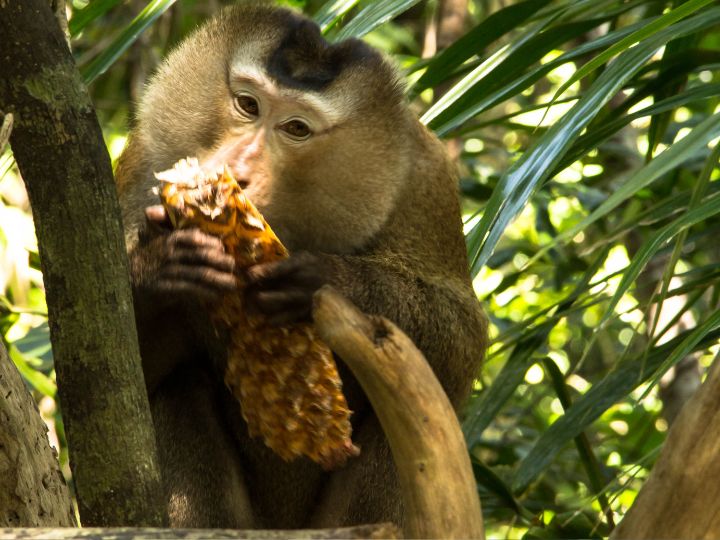
Image Credit: Canva
Risks and Hazards
While pineapple can provide health benefits to certain animals, it can also pose risks and hazards to others. For instance:
- The outer skin of the pineapple: The spiky exterior can be harmful to animals that try to bite into the fruit without adequately breaking it apart. This can result in injuries to the mouth or internal organs.
- The acidity of pineapple: Some animals may experience digestive issues when eating pineapple due to its high acidity. This can lead to irritation in their digestive systems or even ulcers.
- Pineapple consumption by household pets: Though cats and dogs can safely consume small amounts of pineapple, it is crucial not to let them eat the core, as it poses a choking hazard. Additionally, giving too much pineapple to your pet can lead to gastrointestinal upset.
In conclusion, while pineapple offers significant nutritional benefits for certain animals, it is essential to consider the potential risks and hazards it may pose to others. Always ensure that the animals consuming pineapple are aware of these factors to maintain their overall health and safety.
Human Interaction and Influence
Pineapple Plantations
Pineapple plantations are vast agricultural areas where pineapples are cultivated. Pineapples can be grown in various tropical and subtropical environments, with the primary producers being Costa Rica, Brazil, the Philippines, Thailand, and Indonesia. With the global demand for pineapples, these plantations have expanded significantly over the past few decades.
The establishment of pineapple plantations has led to habitat loss for some animals who might feed on pineapples in the wild. However, plantations can also provide new food sources for certain species. For example, birds and small mammals have been known to feed on pineapple scraps and waste products from plantations.
Wildlife Conservation Efforts
Wildlife conservation efforts related to pineapple consumption by animals have two main focuses: ensuring the protection of natural habitats where pineapples grow in the wild and addressing challenges posed to wildlife by pineapple cultivation in agriculture.
As pineapple plantations expand, increasing efforts are being made to counter habitat loss and potential threats to wildlife. Organizations and governments are implementing various strategies to balance pineapple production with environmental conservation. Some strategies include:
- Establishing protected zones that preserve natural habitats where wild pineapples grow.
- Implementing sustainable farming practices, such as crop rotation and reduced use of harmful pesticides.
- Developing eco-friendly pest management methods to protect pineapple crops and limit negative impacts on wildlife.
Through these conservation efforts, we can help maintain a balance between pineapple production and the well-being of animals that rely on this fruit in their natural habitat.
FAQs
Becky is a fervent wildlife enthusiast and pet care expert with a diploma in canine nutrition. Her love for animals stretches beyond the domestic, embracing the wild tapestry of global fauna. With over a decade of experience in animal welfare, Becky lends her expertise to OutlandishOwl through insightful articles, captivating wildlife information, and invaluable guidance on pet nutrition. Her work embodies a deep commitment to understanding the intricate lives of animals and a passion for educating others on sustaining natural habitats. Becky's hands-on conservation efforts and her knack for translating complex dietary science into practical pet feeding tips make her an indispensable voice for creatures great and small.

